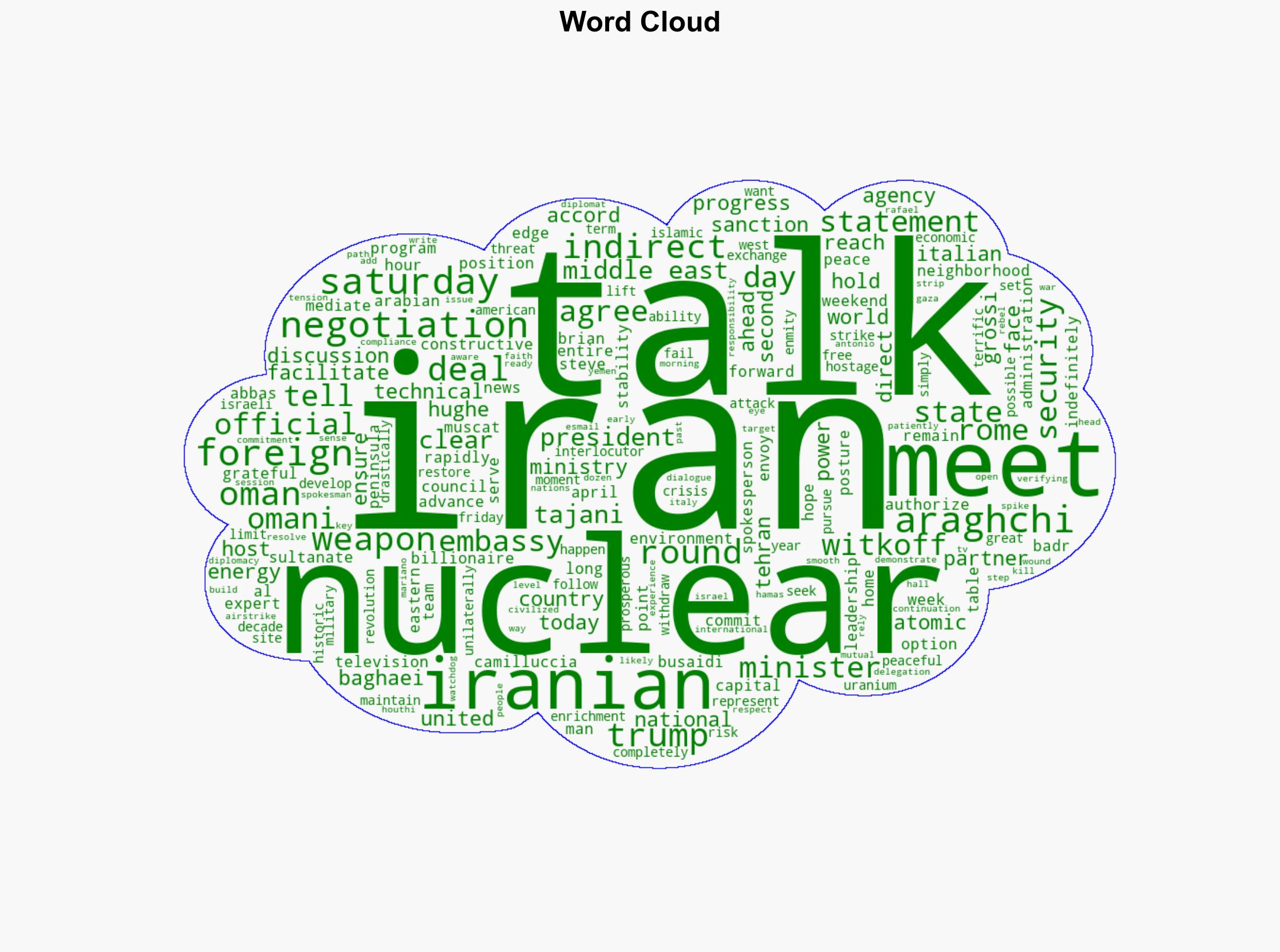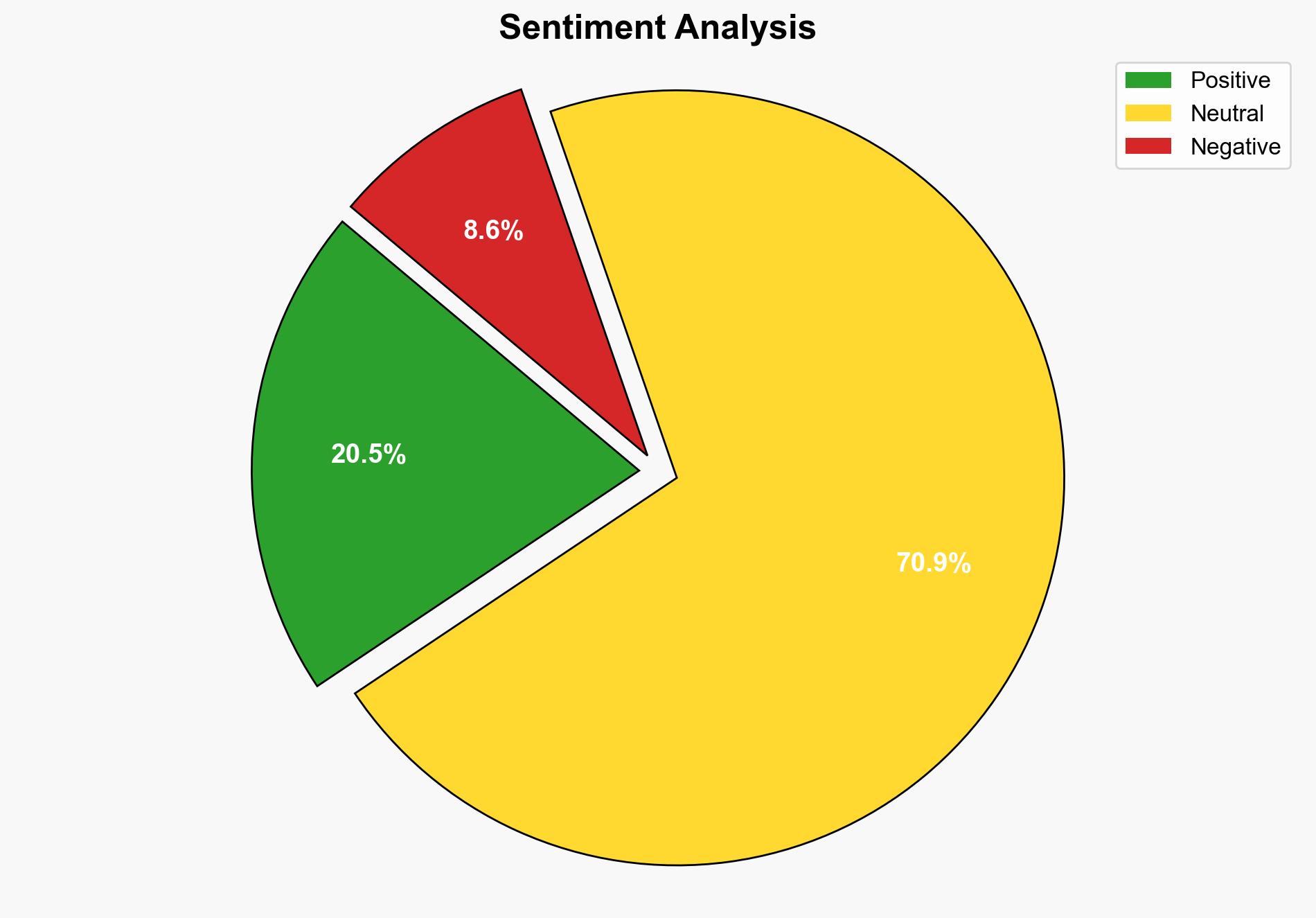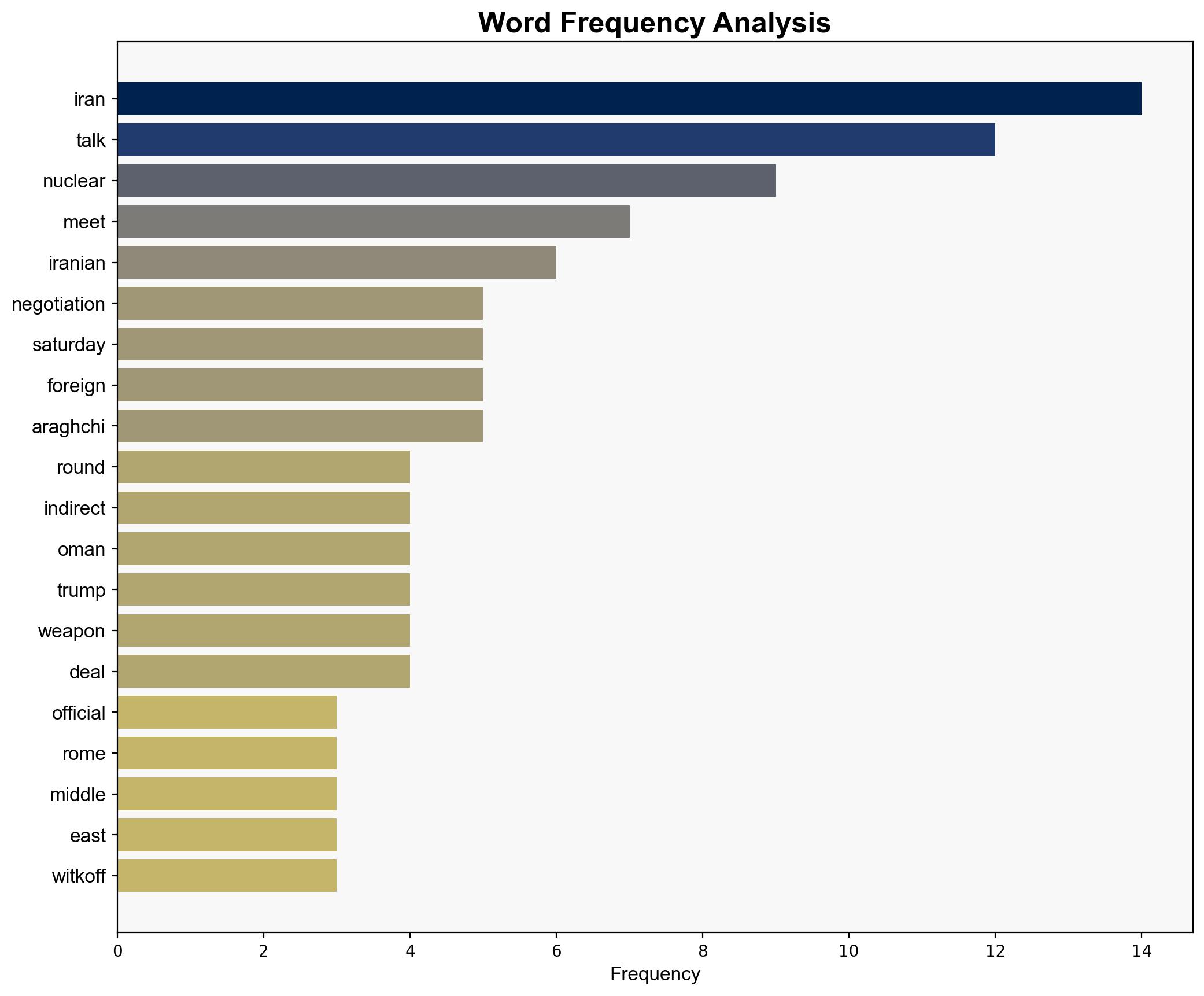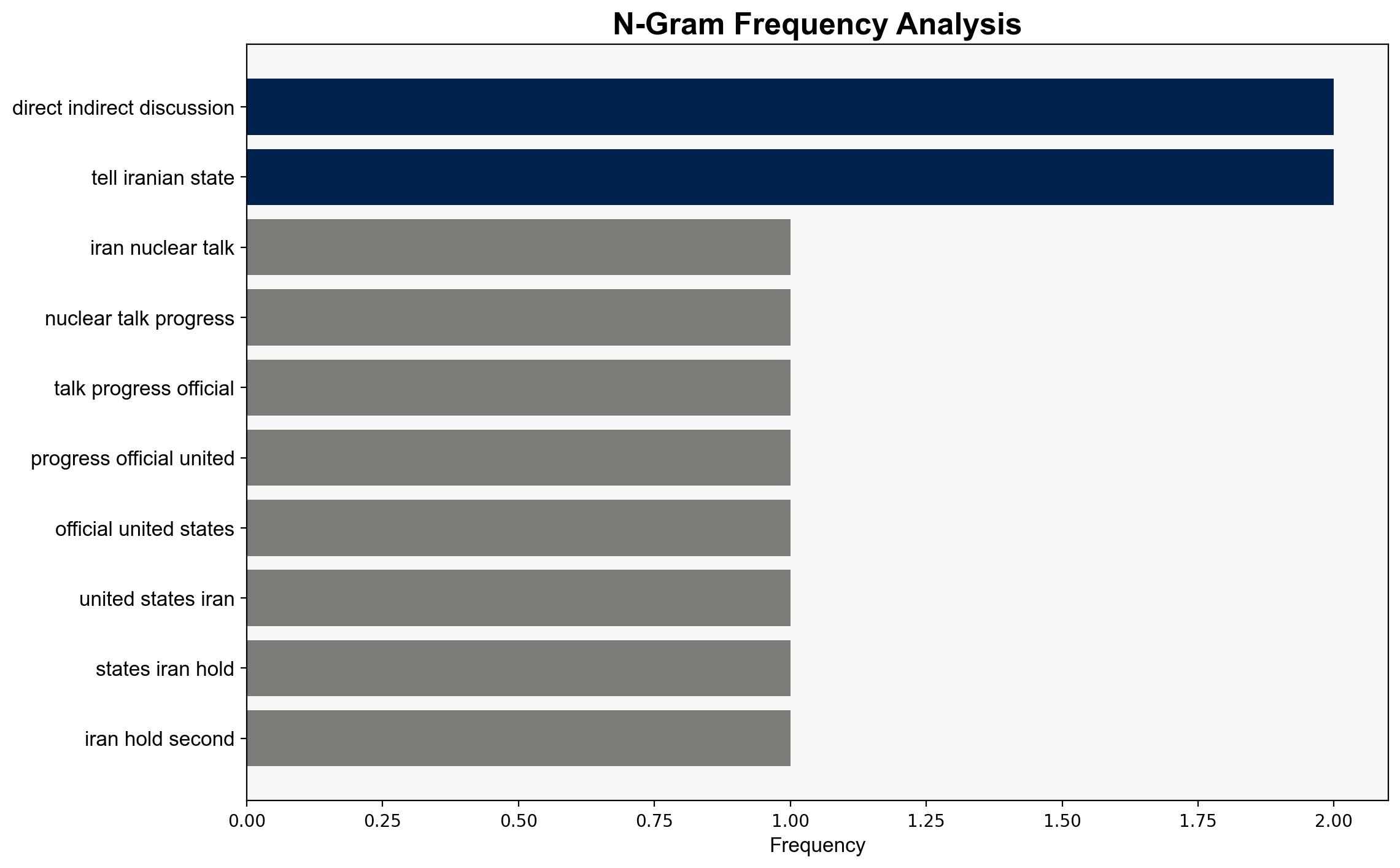US and Iran hold second negotiations over Tehran’s nuclear program – CBS News
Published on: 2025-04-19
Intelligence Report: US and Iran hold second negotiations over Tehran’s nuclear program – CBS News
1. BLUF (Bottom Line Up Front)
The recent negotiations between the US and Iran in Rome mark a significant step forward in addressing Iran’s nuclear program. The talks, facilitated by Oman and hosted by Italy, demonstrate a renewed diplomatic effort to prevent Iran from developing nuclear weapons while allowing for peaceful nuclear energy development. The progress in these discussions could lead to a reduction in regional tensions and a potential revival of the nuclear accord. However, the risk of military confrontation remains if negotiations falter.
2. Detailed Analysis
The following structured analytic techniques have been applied:
SWOT Analysis
Strengths: Diplomatic engagement between the US and Iran, with support from Oman and Italy, provides a platform for constructive dialogue. The involvement of international bodies like the International Atomic Energy Agency ensures compliance and verification.
Weaknesses: Historical mistrust and previous unilateral withdrawal from agreements may hinder progress. Domestic political pressures in both countries could affect negotiation outcomes.
Opportunities: Successful negotiations could lead to regional stability, economic benefits from lifted sanctions, and a framework for future diplomatic engagements.
Threats: Potential for military escalation if talks fail, ongoing regional conflicts, and opposition from hardline factions within both countries.
Cross-Impact Matrix
The outcome of these negotiations could influence regional dynamics, particularly in the Middle East. Improved US-Iran relations may reduce tensions in hotspots like Yemen and the Gaza Strip, while failure could exacerbate conflicts involving Iranian-backed groups.
Scenario Generation
Positive Scenario: Successful negotiations lead to a comprehensive agreement, easing regional tensions and fostering economic growth through lifted sanctions.
Negative Scenario: Talks collapse, leading to increased sanctions, regional instability, and potential military confrontations.
Neutral Scenario: Prolonged negotiations without significant breakthroughs maintain the status quo, with intermittent tensions and diplomatic efforts continuing.
3. Implications and Strategic Risks
The negotiations hold significant implications for regional security and economic stability. A successful agreement could mitigate the threat of nuclear proliferation and reduce the likelihood of military interventions. However, failure to reach a consensus poses risks of heightened tensions and economic sanctions, impacting global markets and regional alliances.
4. Recommendations and Outlook
- Encourage continued diplomatic engagement and multilateral support to sustain momentum in negotiations.
- Prepare contingency plans for potential escalation scenarios, including military and economic responses.
- Support confidence-building measures to address historical mistrust and foster long-term cooperation.
- Monitor regional developments closely to anticipate shifts in alliances and conflict dynamics.
5. Key Individuals and Entities
Abbas Araghchi, Steve Witkoff, Badr al Busaidi, Brian Hughes, Esmail Baghaei, Antonio Tajani, Rafael Mariano Grossi





